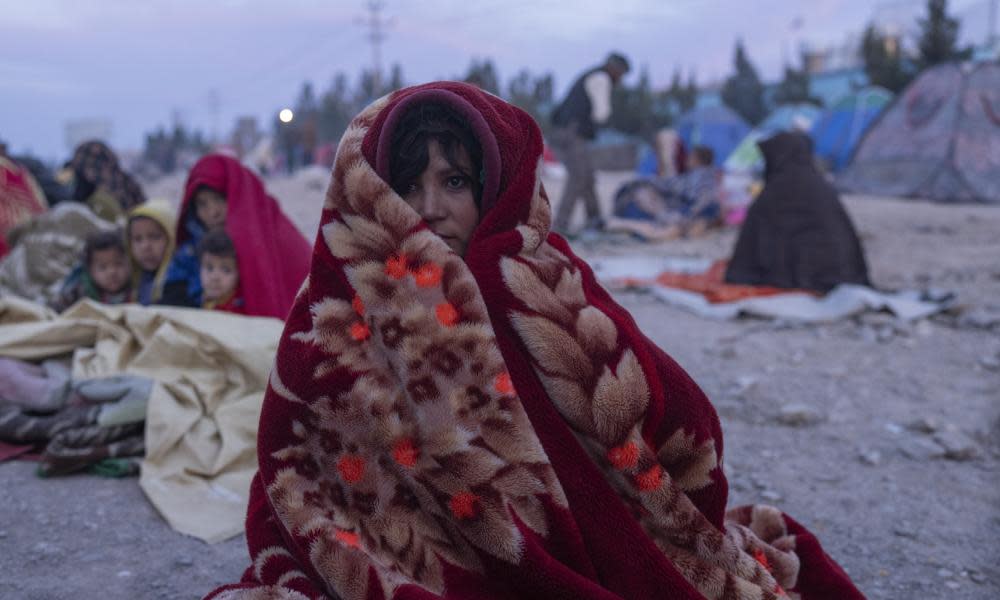The Guardian view on Afghanistan’s despair: the UK must step up

Britain needs to show that it cares about the lives of starving humans, not just animals
Soon after the Taliban swept into Kabul, with Afghanistan’s economy collapsing, people began to sell meagre possessions, from mattresses to cooking pots, to buy basic necessities. Now we learn that desperate Afghans are selling their children and their kidneys, finding no other way to keep their families from starvation. Almost everyone is short of food; more than half the population faces extreme levels of hunger, and nearly 9 million are at risk of famine. The desperation will only worsen. The foreign aid that fuelled the economy has vanished; huge numbers are jobless; food prices have soared. Drought has worsened the already grim picture.
The UN says that $8bn is needed now: $4.4bn in humanitarian assistance, and $3.6bn to deliver essential services and maintain community infrastructure. Deborah Lyons, the special representative for Afghanistan, noted that donors are worried that they may help the Taliban consolidate their position or seem to be legitimising it. The disappearance of feminist activists last week – after one filmed a video of men she said were Taliban trying to enter her home – is further horrifying evidence of their brutal rule. Many older girls are still barred from school. LGBTQ+ people have reported mob attacks and rape. No one wants to give succour to the Taliban. But it should be possible to deal with them to support ordinary Afghans without formally recognising their government. The alternative is to abandon Afghans, who are suffering twice over: from Taliban control and from the international response to it.
A funding conference is desperately needed. The United States is unlikely to step up; Joe Biden wants to put the withdrawal fiasco behind him. Gordon Brown, the former British prime minister, has rightly urged – along with Malala Yousafzai and Save the Children – that the UK should act as the host. Britain too has a responsibility to the Afghan people. It has not met this. It has failed too many of those who are vulnerable because they worked with the UK, or because they did what it urged them to do – such as the women who joined the police or judiciary. As Kabul fell, the government approved the evacuation of cats and dogs cared for by the British animal charity Nowzad and vets who officials admitted were not “extremely vulnerable”, while humans known to be in immediate and severe danger have been denied refuge in the UK. From Foreign Office emails and other documents disclosed on Wednesday, it appears that officials acted on the prime minister’s personal authorisation, despite his denials.
“We are human beings living here like animals, while they are rescuing animals from Afghanistan,” said one man who worked for the British as a consultant – and whose pregnant wife was shot dead when the Taliban raided their home. He has been told that he does not qualify for the Afghan relocations and assistance policy (Arap) because he was employed indirectly. It was supposed to be supplemented by the Afghan citizens resettlement scheme, but there is no way for individuals to apply. It has also been rebadging people who have already arrived in the UK under Arap.
This is shameful. Britain must do more for Afghans who are not safe in their country. But it must also help the many more who will remain there. A funding conference ought to address underlying issues, not just request pledges. The waivers given for humanitarian aid are wholly inadequate: the US should smooth the path for development aid too, but above all, the financial system, on the brink of collapse, must be revived. No aid can suffice when the economy is being strangled. Given the justified concerns that the Taliban could benefit, a variety of solutions have been put forward, from the conditional release of a chunk of Afghanistan’s frozen reserves to credit swaps. Catastrophe can still be averted. It must be.

 Yahoo News
Yahoo News 
